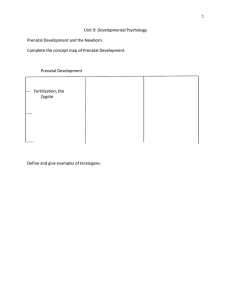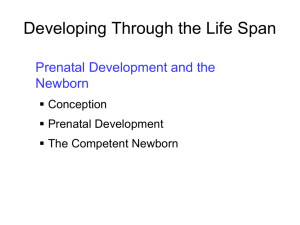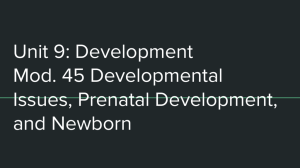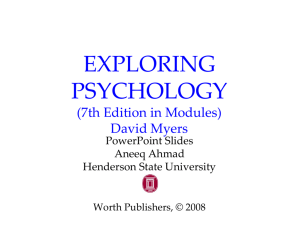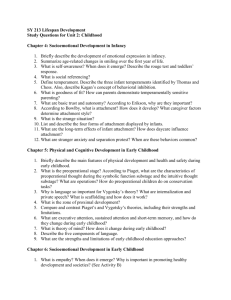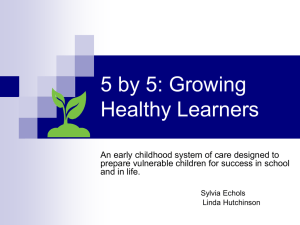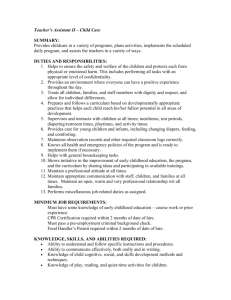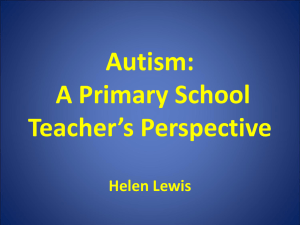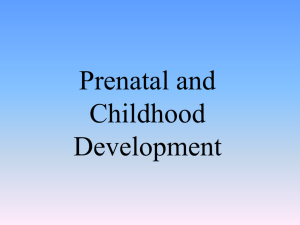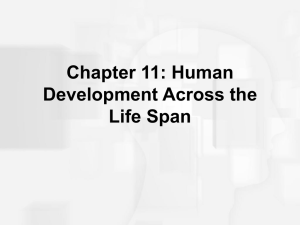Development
advertisement
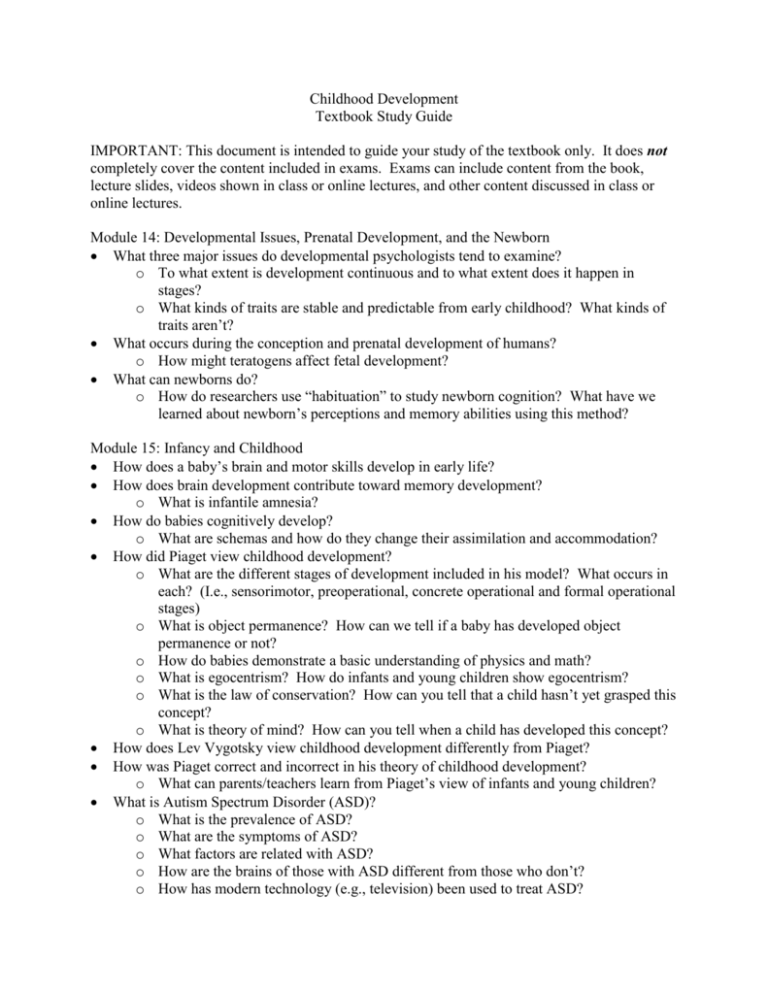
Childhood Development Textbook Study Guide IMPORTANT: This document is intended to guide your study of the textbook only. It does not completely cover the content included in exams. Exams can include content from the book, lecture slides, videos shown in class or online lectures, and other content discussed in class or online lectures. Module 14: Developmental Issues, Prenatal Development, and the Newborn What three major issues do developmental psychologists tend to examine? o To what extent is development continuous and to what extent does it happen in stages? o What kinds of traits are stable and predictable from early childhood? What kinds of traits aren’t? What occurs during the conception and prenatal development of humans? o How might teratogens affect fetal development? What can newborns do? o How do researchers use “habituation” to study newborn cognition? What have we learned about newborn’s perceptions and memory abilities using this method? Module 15: Infancy and Childhood How does a baby’s brain and motor skills develop in early life? How does brain development contribute toward memory development? o What is infantile amnesia? How do babies cognitively develop? o What are schemas and how do they change their assimilation and accommodation? How did Piaget view childhood development? o What are the different stages of development included in his model? What occurs in each? (I.e., sensorimotor, preoperational, concrete operational and formal operational stages) o What is object permanence? How can we tell if a baby has developed object permanence or not? o How do babies demonstrate a basic understanding of physics and math? o What is egocentrism? How do infants and young children show egocentrism? o What is the law of conservation? How can you tell that a child hasn’t yet grasped this concept? o What is theory of mind? How can you tell when a child has developed this concept? How does Lev Vygotsky view childhood development differently from Piaget? How was Piaget correct and incorrect in his theory of childhood development? o What can parents/teachers learn from Piaget’s view of infants and young children? What is Autism Spectrum Disorder (ASD)? o What is the prevalence of ASD? o What are the symptoms of ASD? o What factors are related with ASD? o How are the brains of those with ASD different from those who don’t? o How has modern technology (e.g., television) been used to treat ASD? What are factors of human bonding that lead to proper social development in children? (i.e., body contact, familiarity) o What is “imprinting” in animals and how is it related with “mere exposure” in humans? How do infants show differences in their attachment style? o What factors are related to these differences? o How does infant attachment style affect later adult relationships? o What happens when children are not allowed normal, healthy attachment with a caregiver? o How does neglect or abuse affect attachment style? What is a self-concept and how do children develop it? Why is it important? What are the different types of parenting styles and how do they affect the wellbeing and success of children? o How might children affect their parents’ parenting style?
